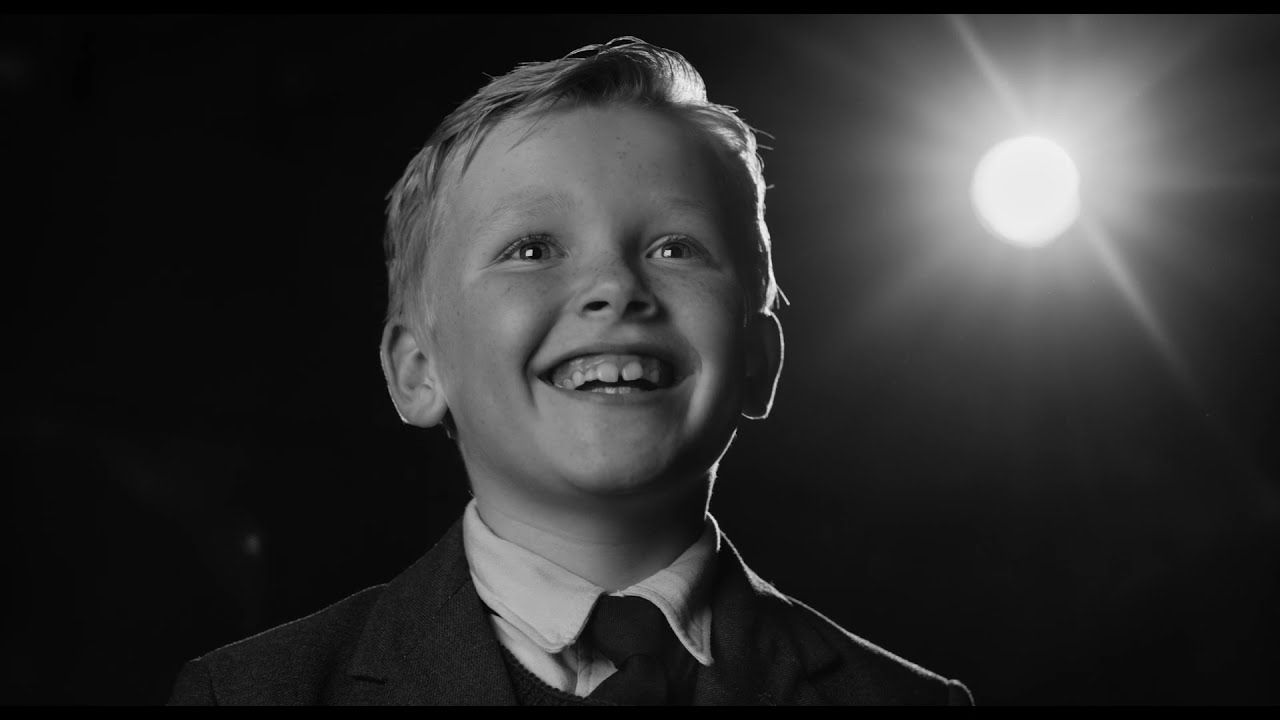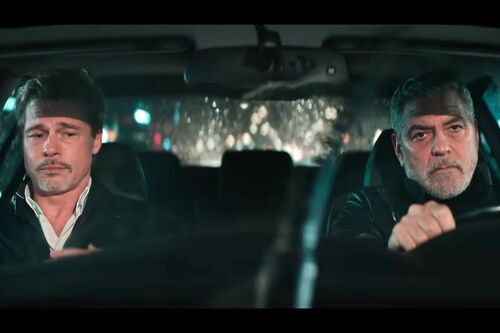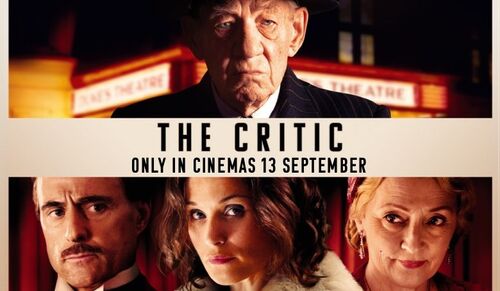
'Belfast' Review
 I really wanted to like “Belfast”. But it’s difficult to get past the numerous odd technical elements in writer/director Kenneth Branagh’s ode to his days growing-up in Northern Ireland in the late ’60s.
I really wanted to like “Belfast”. But it’s difficult to get past the numerous odd technical elements in writer/director Kenneth Branagh’s ode to his days growing-up in Northern Ireland in the late ’60s.
The film opens with a contemporary shot of Belfast, in color. Then the flashback saga begins and the chroma shifts to black and white. As is also the case with Mike Mills’ new Joaquin Phoenix drama, “C’mon C’mon”, the use of B&W achieves no purpose and offers no reward.
The opening few minutes also include an inappropriately loud song — preparing us for an odd, jarring soundtrack which hampers the story throughout.
Nine-year-old Buddy (the Branagh character) is played newcomer Jude Hill. We first meet him as he’s playing in the streets of his neighborhood, which is made-up of both Protestant and Catholic families. Up until now this religious mix hasn’t been an issue with the residents. But times are changing. Militant gangs want to run the Catholics out of Belfast — and Buddy’s neighborhood becomes a center for violent protests and riots.
Unfortunately, the street looks much more like a the set of a Broadway show than an authentic movie location. This hurts the vibe of these scenes tremendously.
Buddy has an older brother, mother (Catriona Balfe), father (Jamie Dornan), and gram and gramp (Judi Dench & Ciarian Hinds). The family has financial troubles, forcing dad to commute to England for work. Dornan pops in and out of the story and we learn very little about what he does and who is is. It’s mom’s responsibility to raise the two boys. They get into typical young boy mischief, which is amplified by their dangerous environment.
“Belfast” is basically an Irish version of (the original) “The Wonder Years” — a series of quirky little adventures and misadventures seen through the eyes of a bubbly squirt. Kevin — I mean Buddy — has a crush on a schoolmate, likes playing with Matchbox cars, loves hanging with this grandparents… and always has something clever to say. The only thing missing is the Daniel Stern narration.
However, this slice of life story lacks universal appeal and impact. Branagh’s lens is extremely narrow. A recurring line — “If you can’t be good, be careful” — applies to the entire movie, as you can feel how careful Branagh is with every single shot and line of dialogue. So much is forced into the script — cutesy punchlines, showy monologues (often containing obvious messages) and Buddy’s love of the cinema. We gets clips from the classics “High Noon”, “Chitty Chitty Bang Bang” and “One Million Years B.C.”
The tone of “Belfast” is much lighter than I was expecting. Early on we figure out Point A and Point B and can pretty much guess every move in between. The only exceptions are the previously mentioned annoying pop songs. You may have heard about Dornan’s rendition of “Everlasting Love”. That scene (which arrives pretty late in the film) last only about 90-seconds and seems to have been infused as an afterthought.
The best performances are delivered by Dench and Hinds, though nothing they say or do is in any way surprising.
No doubt this passion project means a lot to Branagh — and it should. But we all know what it’s like when you’re forced to watch other people’s home movies.
This irishman cannot recommend you take this trip to “Belfast”.


